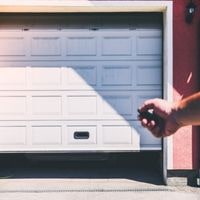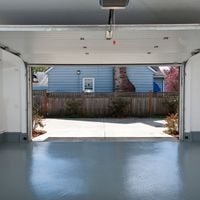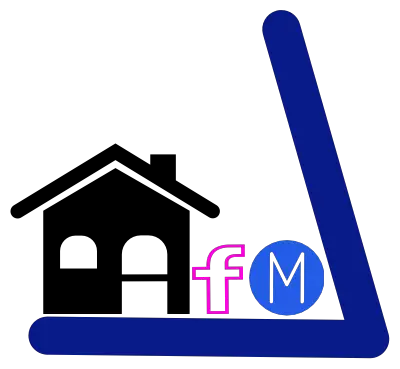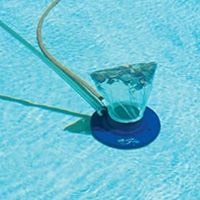Why Do Garage Door Jerk When Closing
Why do garage door jerk when closing. Did you ever notice that when your garage door closes, it’s like there is a jerk? If so, you’re not alone. Most homeowners experience this, and for some people.
The jerking motion may be enough to make them feel sick or cause an injury. You should also be curious about why do garage door jerk when closing.
The garage door is an important, often overlooked part of your home. It protects not only your cars but also the items you store in your garage.
One of the most common problems people experience with their garage doors is a jerking motion when closing or opening them. Many things can cause this, and this blog post will try to address some of those issues.
Why Do Garage Door Jerk When Closing

If you notice that your garage door is jerking while closing, several things may be causing it. Whether you suspect a broken garage door spring or opener problems.
Hiring a professional to inspect and service your system could save you from further damage and save money in costly repairs down the road. Here are 11 reasons why your garage door jerk when closing.
1. Worn or Improper Rollers
The most common reason garage doors jerk when closing is worn or improper rollers, especially on steel doors with balance systems and nylon wheels with cables running through them.
When garage doors jerk as they close, it’s often due to worn or improperly adjusted rollers which support the door as it closes. If your garage door has a broken spring and is difficult to open.
Then first check if the garage door rollers are still operating smoothly and if they’re not. You should replace them before hitting the road or calling us for fast and affordable same-day garage door repair service!
2. Defective Spring(s) On the Track
Another common cause why some homeowners’ garage doors jerk when closing is defective springs on the tracks; this usually happens when one of your torsion springs breaks.
Replace both springs with a pair of new ones, and you won’t have to deal with your door coming down too fast or too slow.
3. Door Out of Balance
Garage doors are heavy, so if one side is more severe than the other because it has sagged over time, that can cause uneven wear on your bottom seal.
An out-of-balance garage door makes an automatic opener work harder, which also causes the door to jerk when closing.
4. Improperly Adjusted Opener Chain/Cable Tensioner
An improperly adjusted garage door cable tensioner may cause excessive play in the roller carriage assembly. This happens because nothing holds up one end of your garage door while it closes, resulting in a jerking motion.
5. Excessive Play in The Roller Carriage Assembly
Roller bearings wear out over time, and a garage door that is constantly opening and closing can accelerate this process resulting in uneven floor surfaces where the door closes.
This causes your garage door to come down at an angle which will cause it to jerk while closing. If you notice that there’s some play when trying to lift.
Then the rollers may need replacing or adjusting; otherwise, it may lead to further damage to your garage door system components.
6. Uneven Floor Surface Where the Door Closes

Garage doors are heavy, so if one side is more severe than the other because it has sagged over time, that can cause uneven wear on your bottom seal.
An out-of-balance garage door makes an automatic opener work harder, which also causes the door to jerk when closing.
7. Door Not Closing Square to The Floor
If the door is not closing squarely, it’s probably due to uneven floor surfaces or debris accumulated under your garage door track.
If you’re having problems with the spring assembly on your garage door opener, then this can cause your garage door to come down at an angle as well, which leads to a jerking motion.
8. Defective Safety Reversing Sensor(s)
If you have a garage door with safety-changing sensors, then your opener will stop operating if the sensors are obstructed or misaligned. This may result in a jerking motion as it tries to use again.
Check the position of your safety reversing sensor and make sure they’re both clean.
9. Pause Button Pressed by Mistake
Your automatic garage door opener has an emergency release cord at the back of the motor unit, which can be pulled like a standard pull cord.
Even though this is done for emergencies only, sometimes you might accidentally press the pause button instead of the stop button; this will still cause your garage door to come down at an angle that will jerk it when closing.
10. Ex Power Supply to Safety Reversing System
If there’s a power outage, then your reversing safety system may no longer function properly. If you have the wrong size fuse installed in your main electrical panel or main circuit breaker, this can also happen.
If this happens, check for any worn-out parts and replace them if needed. Nowadays, some homeowners prefer to have their garage doors repaired instead of getting new ones, so we offer quality service without charging too much.
11. Garage Door Opener Connector Wire Disconnected
Suppose everything has been done correctly at some point of installation except for this part where someone might accidentally disconnect the red wire from the opener motor unit.
In that case, this can lead to a jerking motion when closing as well. This wire is responsible for transferring power from your opener motor unit to the track, which makes it work automatically without you having to pull the cord every time.
Conclusion
Why do garage door jerk when closing. We’ve listed 11 reasons why so check if any of them apply to you, and if so, make sure you call professionals for fast and affordable garage door repair service!
Have a nice day!
Related Post




